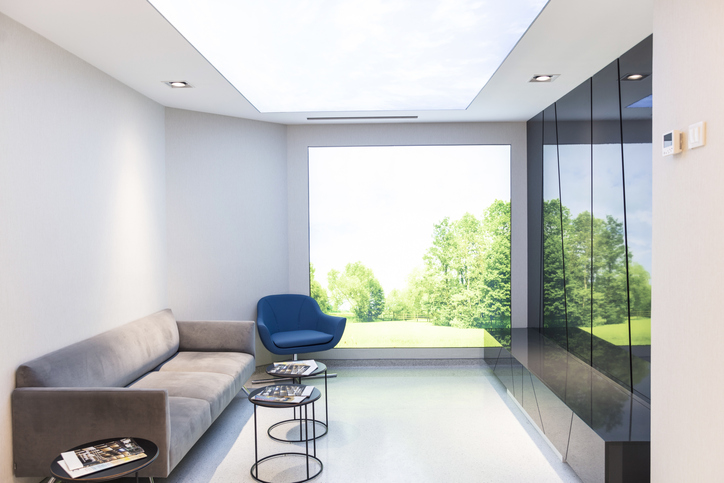It is easy to think that on cloudy days, we are less susceptible to the effects of UV rays, but this is actually a big misconception. Even on cloudy days, ultraviolet rays reach the earth's surface and affect the skin. There are two types of ultraviolet rays, UVA and UVB, and both can cause skin aging, blemishes, and even skin cancer. Here, we will explain in detail why it is necessary to take measures against ultraviolet rays even on cloudy days and introduce effective countermeasures. With the right knowledge, you can protect your skin even on cloudy days.

Graduated from the Faculty of Medicine, National Kumamoto University. After serving as the director of major beauty clinics in Japan, etc., he opened Aladdin Aesthetic Clinic in 2023. He is a professional in aesthetic medicine with a doctorate in anti-aging research and many years of experience. With the motto of "Toward the realization of cosmetic medicine without lies," he aims to be the "Only One" together with his patients.
The reality of UV rays on cloudy days? UV rays are present even on cloudy days!

We often hear that "there is little concern about ultraviolet rays on cloudy days," but this is a big misconception. Data from the Japan Meteorological Agency shows that even on cloudy days, the UV index often reaches the "moderate" level, and sometimes even the "strong" level. In other words, even on cloudy days, it is necessary to take adequate measures against ultraviolet rays.
Types of ultraviolet rays and their effects on the skin
There are two main types of ultraviolet radiation, UVA and UVB, each of which affects the skin differently.
First, UVA has the longest wavelength in the UV spectrum, ranging from 320 to 400 nanometers. This long wavelength easily penetrates clouds and window glass, so it continues to reach our skin even indoors and in cars. UVA reaches the deepest part of the skin, the dermis layer, and destroys collagen, elastin, and other important fibers that support the skin's structure. As a result, the skin loses its elasticity, causing wrinkles and sagging in the long term.
In addition, UVA is known to accelerate melanin production and accelerate skin aging. Melanin is produced to protect the skin, but excessive melanin production can lead to blotches and uneven skin tone. Even on cloudy days, one cannot escape the effects of UVA. Therefore, the use of sunscreens that provide broad-spectrum protection, including UVA protective ingredients (e.g., avobenzone and titanic acid), is recommended.
UVB, on the other hand, has a wavelength of 290 to 320 nanometers and mainly affects the superficial layers of the skin, especially the epidermis; its intensity varies with time of day, season, and geographic location, and is strongest in summer and during the day between 12:00 and 3:00 p.m. UVB causes direct skin damage and is the primary cause of sunburn. and redness and inflammation after sunburn are caused by this type of UVB radiation.
In addition, UVB is also widely recognized to increase the risk of skin cancer, causing direct damage to DNA, which can result in mutation of the cell's genetic information and ultimately progress to skin cancer. Even on cloudy days, UVB is not completely blocked, so it is important to apply sunscreen with an appropriate SPF (sun protection factor).
Understanding UV Index on Cloudy Days
The ultraviolet index (UV index) is a numerical measure of the intensity of solar ultraviolet radiation's effect on the earth's surface. This index fluctuates not only on sunny days but also on cloudy days, indicating that the amount of ultraviolet radiation varies greatly depending on the weather. For example, thin or dispersed clouds do not block much UV rays, allowing them to reach the earth's surface easily. On the other hand, thick rain clouds, such as thick rain clouds, block more UV radiation, but do not completely prevent it.
UV protection is recommended when the UV index is "3" or higher. This index can be easily checked using local weather information or apps. It is important to check this index before going outside and take measures according to the intensity of UV rays on that day. Especially in spring and summer, the UV index is often high even on cloudy days, making the use of sunscreen essential.
Why is UV radiation so strong even on cloudy days?

When going out on a cloudy day, many people tend to neglect UV protection. However, in fact, UV rays on cloudy days also require great care. The reason for this is that clouds do not completely block UV rays. In particular, thin clouds and fault clouds have the property of allowing UV rays to pass through to some extent. This means that ultraviolet rays leaking from the edges and gaps of clouds are scattered throughout the sky, and stronger-than-expected ultraviolet rays may reach the ground surface.
On sunny days, ultraviolet rays from the sun reach us directly, but on cloudy days, these rays are scattered by clouds, which may seem safer at first glance.
However, this scattered UV radiation can have a surprisingly strong UV index, and can actually be just as dangerous to the skin, if not more so, than on a sunny day. For this reason, UV protection cannot be neglected even on cloudy days.
The intensity of ultraviolet radiation varies greatly depending on the season. In summer, the UV index is higher due to the higher position of the sun and increased solar radiation. On the other hand, even in spring and fall, people are more susceptible to ultraviolet rays, especially during the daytime.
In winter, the UV index is relatively low due to the lower position of the sun, but snow reflecting off the ground can result in increased UV exposure. Understanding these facts will help ensure appropriate UV protection throughout the year.
Can I be affected by UV rays even indoors?
While many people believe that they are safe from UV radiation indoors, the reality is that they can be affected by UV radiation inside their homes and even in their offices. This fact is especially important for those who prefer to work or relax by the window.
Window glass has the ability to block some UV rays, but it does not completely block all UV rays. In particular, UVA rays have a tendency to penetrate glass, and this can cause skin aging and wrinkling when spending long periods of time indoors. UVA entering the room can reach deeper layers of the skin and cause long-term damage.
Even on cloudy days, ultraviolet rays from outside enter the room through the windows. Since ultraviolet rays are easily scattered on cloudy days, the amount of ultraviolet rays entering the room through window glass is not small. For this reason, UV protection is especially necessary when working or resting near windows. In positions where light from windows directly hits the skin, the use of sunscreen or blackout curtains should be considered.
Thus, it is important to understand that one cannot completely escape UV rays even indoors and to take appropriate measures. By doing so, the effects of UV rays on the skin can be minimized.
Points for proper UV protection on cloudy days and indoors

Skin problems to watch out for even on cloudy days include sunburn, dryness, and spotting. To prevent sunburn, the aforementioned sunscreen and clothing measures are important. Let's look at what specific measures need to be taken.
How to choose and use sunscreen
Even on cloudy days, UV rays are present and can affect the skin. Therefore, sunscreen is an essential part of your daily skin care routine. When choosing a sunscreen, pay attention to the SPF and PA labels.
SPF indicates protection against UVB (ultraviolet B waves), while PA indicates protection against UVA (ultraviolet A waves). It is recommended to choose a sunscreen with SPF 30 or higher and PA++ or higher, even on cloudy days. It is also important to apply sunscreen 30 minutes before going out and reapply every 2 to 3 hours.
Skin care products containing vitamins for UV protection
Skin care products containing vitamins C and E are effective in protecting against UV rays. Vitamin C is a strong antioxidant and helps reduce the damage caused by UV rays.
Vitamin E also has antioxidant properties and helps skin retain moisture. Serums and creams containing these vitamins can be used to protect against UV rays and care for beautiful skin at the same time.
UV protection through clothing and accessories
It is important to utilize appropriate clothing and accessories to protect against UV rays even on cloudy days. Wearing long-sleeved shirts and pants, hats, and sunglasses can help prevent UV rays from directly hitting the skin.
It is also helpful to choose clothing with UV-blocking treatments and sunglasses that block UV rays. This will minimize UV damage when going outside.
UV protection indoors
Even indoors, UV rays cannot be completely blocked, so measures must be taken. UV-cut film can be applied to windows to block UV rays, especially if you spend a lot of time near windows.
UV-cut curtains can also provide even more effective protection from UV rays. This allows you to stay indoors with peace of mind.
Consider skin care treatment at a beauty clinic.
Beauty clinics offer a variety of treatments to rejuvenate the skin and solve problems. Particularly popular treatments include laser therapy, peels, and hyaluronic acid.
When damage accumulates on the skin due to ultraviolet rays, pigmentation occurs, such as freckles and spots. Targeting this, light of specific wavelengths is irradiated to the skin to exfoliate damaged skin cells and promote the production of new skin cells, thereby speeding up recovery. Skin texture is improved and the overall skin tone is expected to become more even.
Peels are also effective in treating acne, fine wrinkles, and sun damage by applying agents to the skin to exfoliate dead skin layers and stimulate skin regeneration. This process leaves the skin brighter, healthier, and renewed.
If you want to feel the difference more quickly, hyaluronic acid can be injected. This treatment is injected into specific areas in response to facial wrinkles and volume loss to reduce the appearance of wrinkles and indentations, but also improves skin firmness and elasticity, leading to healthier, younger-looking skin.
summary
The reason why UV protection is important even on cloudy days is that UV rays pass through clouds and reach the earth's surface. By taking daily UV protection precautions, using sunscreen, and wearing appropriate clothing, skin can be protected from UV rays. To maintain beautiful skin, it is important to do so on a daily basis. Maintain healthy and beautiful skin by taking the proper measures to protect your skin from UV rays. We hope that the information here has provided you with useful information on how to protect your skin from UV rays.
At Aladdin Aesthetic Clinic, based on our many years of experience in cosmetic medicine and cosmetic dermatology and the knowledge of our doctoral degree, we provide counseling that aims to be "only one", offering the best treatment for each person we meet. We offer only the necessary treatments without any unnecessary information or suggestions.
Feel free to use our official LINE account for 24-hour counseling and reservations. Please feel free to contact us for free counseling for the first time or if you have any concerns.






